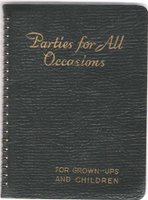One water lily, five sentences:
Soon the course of the Vivonne is obstructed by water plants. First they appear singly, like this water lily, for instance, which was allowed so little rest by the current in the midst of which it was unfortunately placed that, like a mechanically activated ferry boat, it would approach one bank only to return to the one from which it had come, eternally crossing back and forth again. Pushed toward the bank, its peduncle would unfold, lengthen, flow out, reach the extreme limit of its tension at the edge where the current would pick it up again, then the green cord would fold up on itself and bring the poor plant back to what may all the more properly be called its point of departure because it did not stay there a second without starting off from it again in a repetition of the same maneuver. I would find it again, walk after walk, always in the same situation, reminding me of certain neurasthenics among whose number my grandfather would count my aunt Léonie, who present year after year the unchanging spectacle of the bizarre habits they believe, each time, they are about to shake off and which they retain forever; caught in the machinery of the maladies and their manias, the efforts with which they struggle uselessly to abandon them only guarantee the functioning and activate the triggers of their strange, unavoidable, and morose regimes. This water lily was the same, and it was also like one of those miserable creatures whose singular torment, repeated indefinitely throughout eternity, aroused the curiosity of Dante, who would have asked the tormented creature himself to recount its cause and its particularities at greater length had Virgil, striding on ahead, not forced him to hurry after immediately, as my parents did me.From Swann's Way, translated by Lydia Davis (New York: Viking, 2002), 172-173
Five comparisons: the water plants appear one by one, "like this water lily." This lily then is likened to a ferry and to "certain neurasthenics," among whom the narrator's grandfather would include Léonie. Now we're somehow inside both the narrator's consciousness and that of his grandfather, and we're out on a walk and back home in Léonie's room. But there's more: this lily also resembles a figure in Dante's hell, adding a new overtone to the ferry comparison. And finally — finally! — the narrator compares Dante and Virgil to himself and his parents, bringing us back to the walk itself and childhood.
All Proust posts (via Pinboard)


